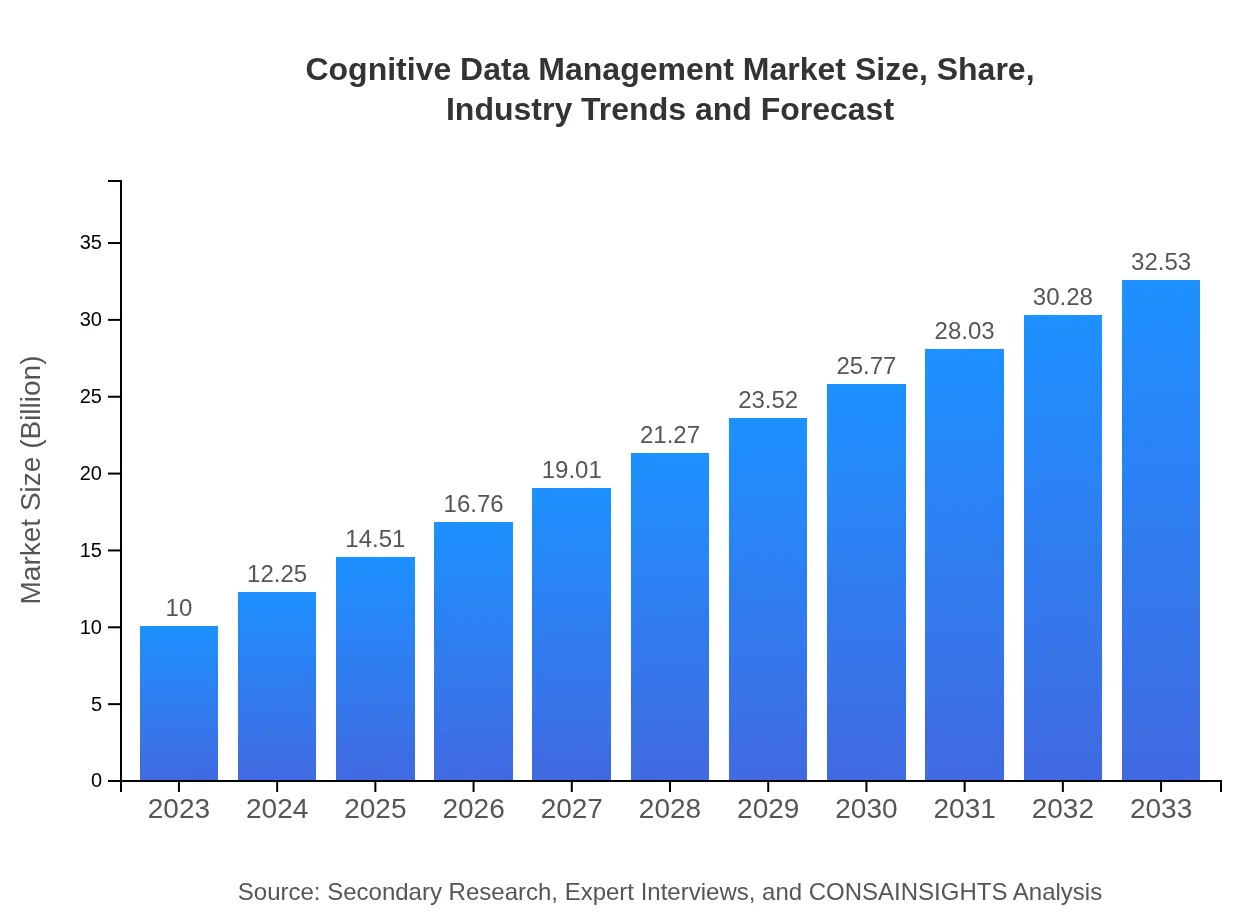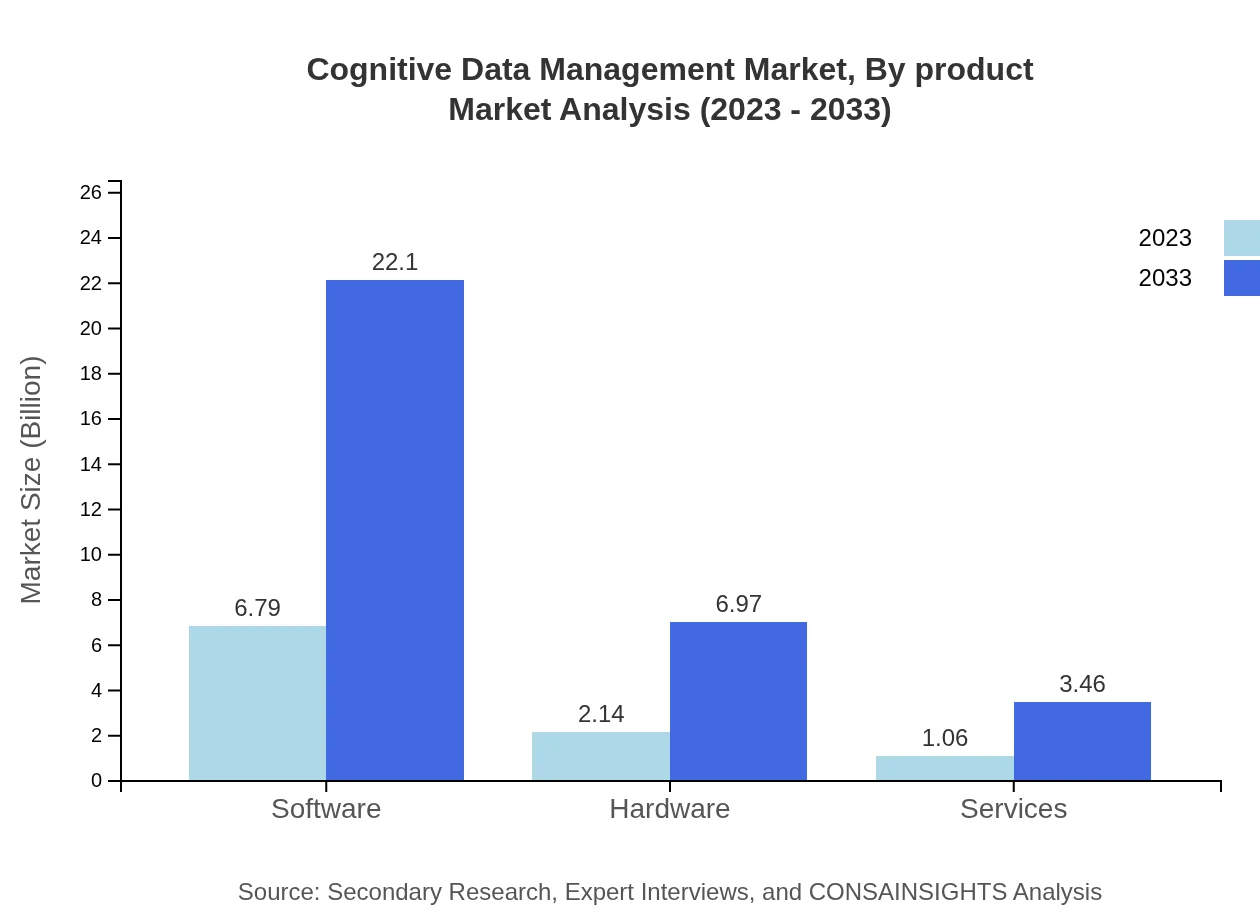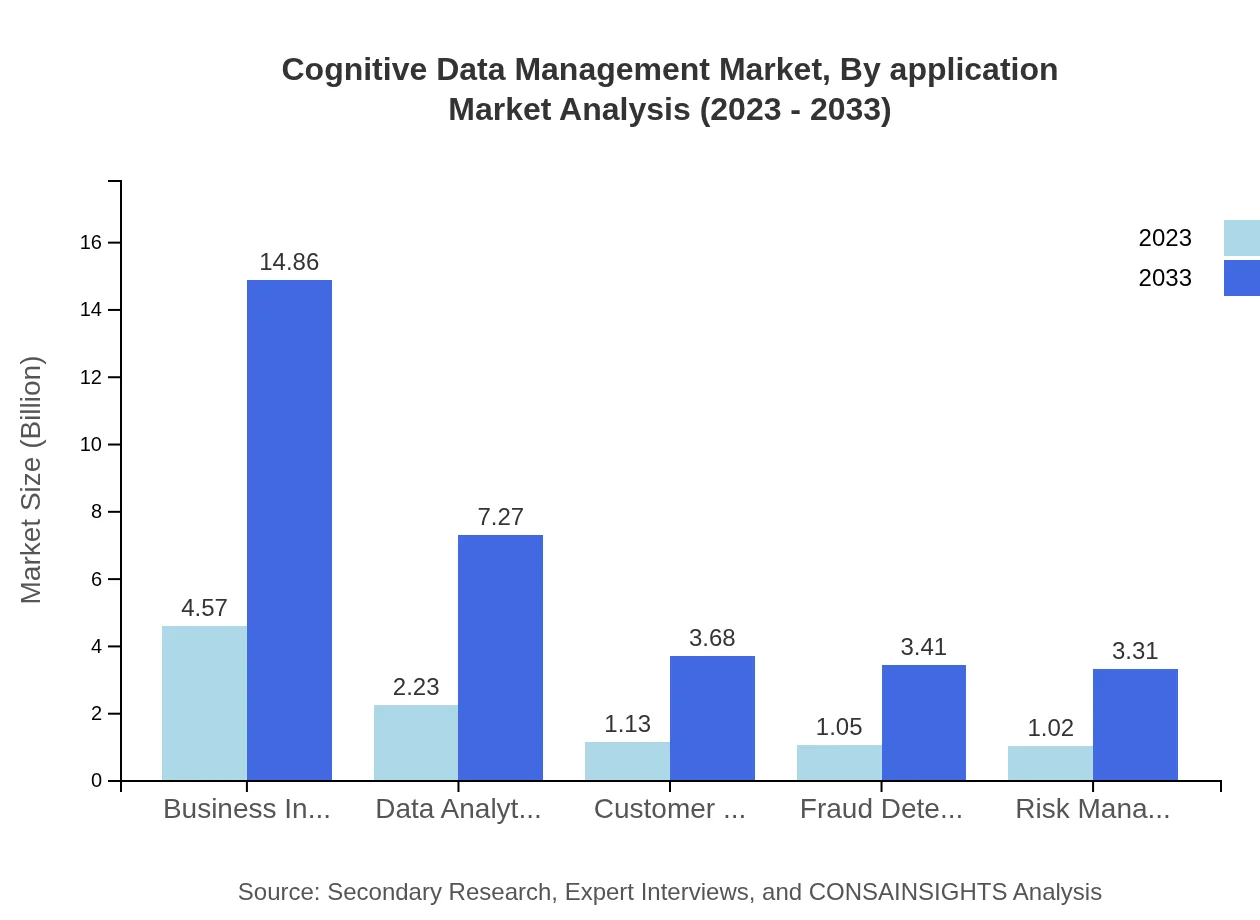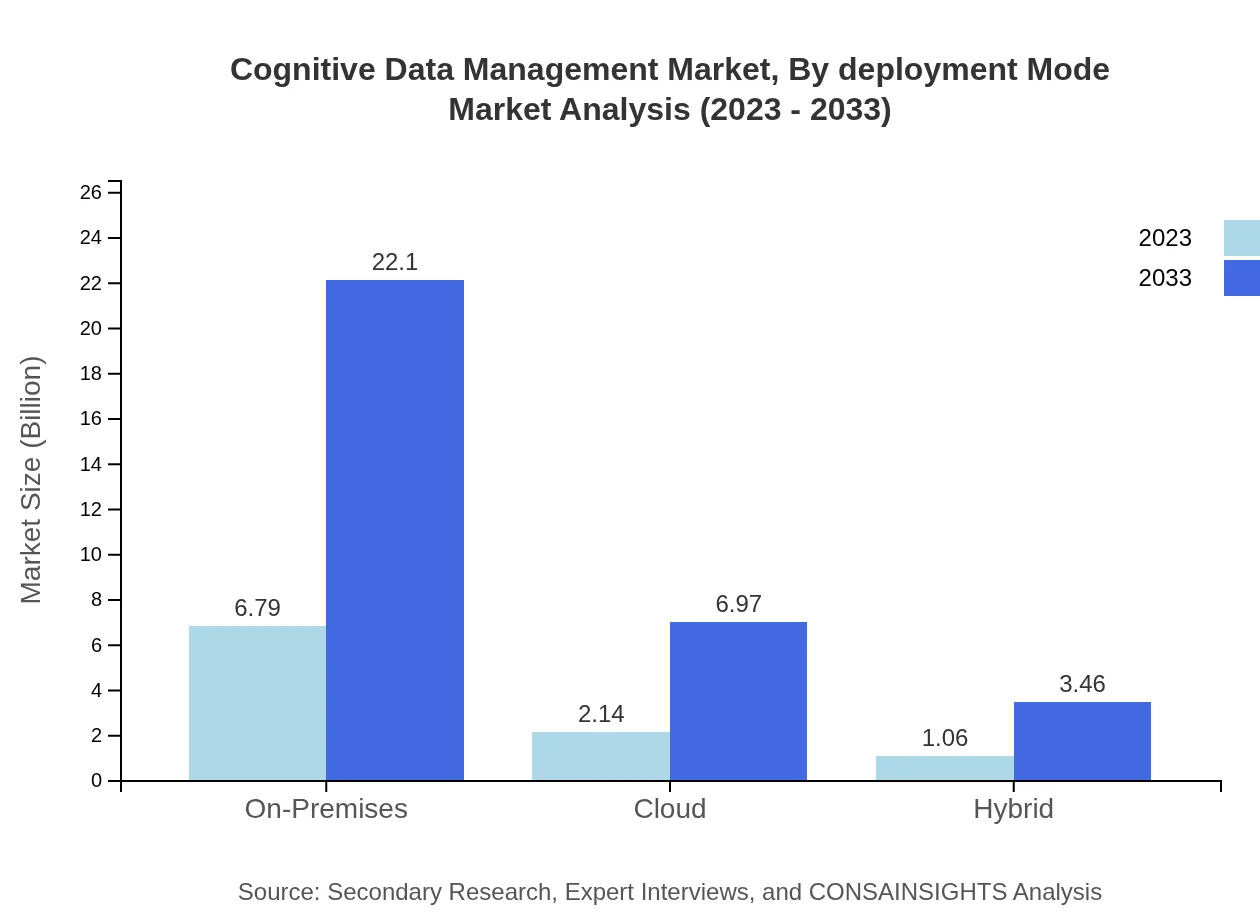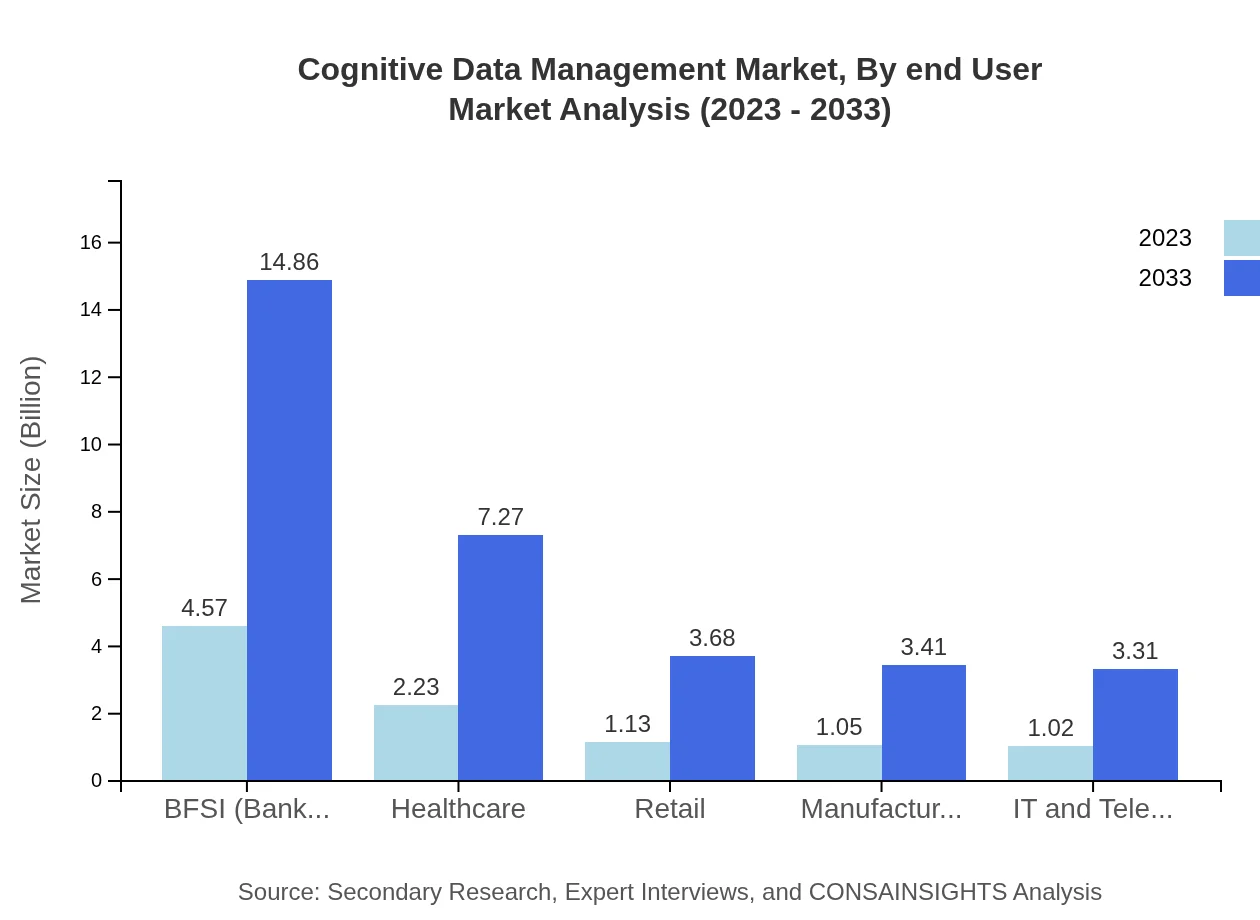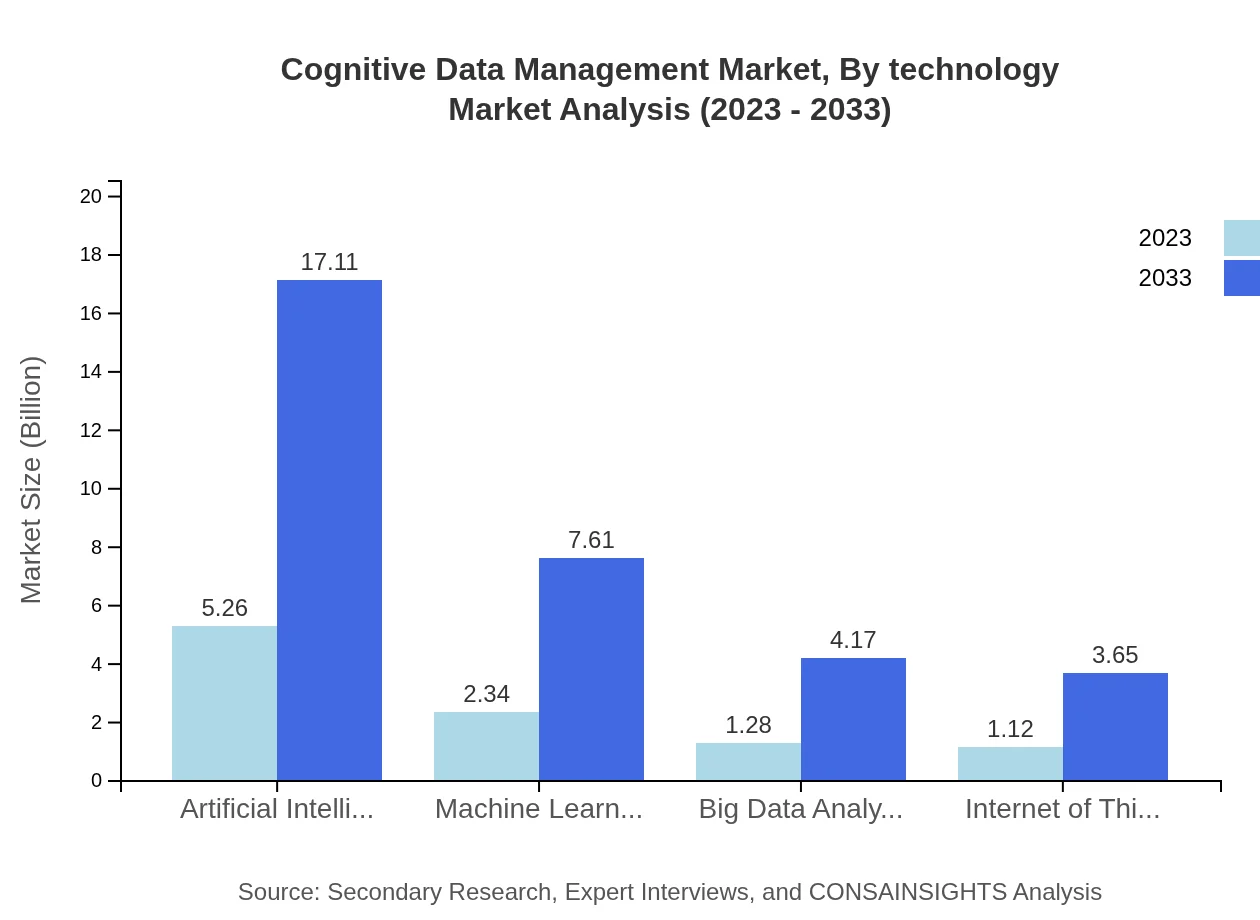Cognitive Data Management Market Report
Published Date: 31 January 2026 | Report Code: cognitive-data-management
Cognitive Data Management Market Size, Share, Industry Trends and Forecast to 2033
This report provides an in-depth analysis of the Cognitive Data Management market from 2023 to 2033, including market size, growth projections, trends, regional insights, and key players.
| Metric | Value |
|---|---|
| Study Period | 2023 - 2033 |
| 2023 Market Size | $10.00 Billion |
| CAGR (2023-2033) | 12% |
| 2033 Market Size | $32.53 Billion |
| Top Companies | IBM Corporation, Microsoft Corporation, SAP SE, Oracle Corporation, Snowflake Inc. |
| Last Modified Date | 31 January 2026 |
Cognitive Data Management Market Overview
Customize Cognitive Data Management Market Report market research report
- ✔ Get in-depth analysis of Cognitive Data Management market size, growth, and forecasts.
- ✔ Understand Cognitive Data Management's regional dynamics and industry-specific trends.
- ✔ Identify potential applications, end-user demand, and growth segments in Cognitive Data Management
What is the Market Size & CAGR of Cognitive Data Management market in 2023?
Cognitive Data Management Industry Analysis
Cognitive Data Management Market Segmentation and Scope
Tell us your focus area and get a customized research report.
Cognitive Data Management Market Analysis Report by Region
Europe Cognitive Data Management Market Report:
The European Cognitive Data Management market is expected to grow from $2.86 billion in 2023 to $9.32 billion by 2033, supported by stringent data governance regulations and an increasing focus on privacy and security, which are encouraging organizations to adopt effective data management practices.Asia Pacific Cognitive Data Management Market Report:
In the Asia Pacific region, the Cognitive Data Management market is projected to grow from $1.78 billion in 2023 to $5.78 billion in 2033, representing a significant development fueled by increased digitalization and adoption of advanced technologies in countries like China and India. The rise in data generation from various sectors, including manufacturing and telecom, is also contributing to this growth.North America Cognitive Data Management Market Report:
North America is anticipated to lead the market, growing from $3.90 billion in 2023 to $12.67 billion by 2033. The presence of major technology firms and increasing adoption of AI/ML technologies are fuelling the demand for CDM solutions in this region.South America Cognitive Data Management Market Report:
In South America, the market is expected to grow from $0.78 billion in 2023 to $2.52 billion by 2033. This growth is driven by expanding cloud infrastructure and increased investments in data analytics by organizations seeking to enhance operational efficiencies.Middle East & Africa Cognitive Data Management Market Report:
In the Middle East and Africa, the market is projected to expand from $0.69 billion in 2023 to $2.23 billion by 2033, driven by growing digital transformation initiatives in both public and private sectors, aiming to improve decision-making capabilities.Tell us your focus area and get a customized research report.
Cognitive Data Management Market Analysis By Product
In terms of product performance, software is the dominant segment in the Cognitive Data Management market, expected to grow from $6.79 billion in 2023 to $22.10 billion by 2033. Services and hardware follow, with considerable contributions to the market, showing a shift towards integrated solutions.
Cognitive Data Management Market Analysis By Application
The BFSI sector holds the largest share in the Cognitive Data Management market, valued at $4.57 billion in 2023 and expected to reach $14.86 billion by 2033. Healthcare and retail sectors also show significant growth, underscoring the importance of data management in enhancing service delivery.
Cognitive Data Management Market Analysis By Deployment Mode
On-premises solutions dominate the market with a market size of $6.79 billion in 2023, while cloud solutions are rapidly gaining traction, expected to grow from $2.14 billion to $6.97 billion over the forecast period.
Cognitive Data Management Market Analysis By End User
Major end-user industries include BFSI, healthcare, and IT & telecom. The BFSI sector leads with a market share of 45.69%. All industries emphasize risk management, analytics, and enhanced customer relationship solutions, showcasing the diverse applications of cognitive technologies.
Cognitive Data Management Market Analysis By Technology
AI technology holds the largest share in the Cognitive Data Management market, with a valuation of $5.26 billion in 2023, and is projected to grow to $17.11 billion by 2033. Other technologies like Machine Learning and Big Data Analytics are also vital, supporting the industry's evolution.
Cognitive Data Management Market Trends and Future Forecast
Tell us your focus area and get a customized research report.
Global Market Leaders and Top Companies in Cognitive Data Management Industry
IBM Corporation:
IBM is a leader in cognitive data solutions with its Watson platform, providing businesses with AI-driven data analytics and management capabilities.Microsoft Corporation:
Microsoft offers robust cloud services and cognitive solutions through Azure, facilitating strong data management and analytics for enterprises.SAP SE:
SAP enables organizations to optimize their data workflows and management processes with its comprehensive enterprise software solutions.Oracle Corporation:
Oracle provides advanced database solutions and analytics, focusing on cognitive technologies to enhance data management capabilities.Snowflake Inc.:
Snowflake is recognized for its cloud data platform that allows seamless data sharing and analytics across organizations.We're grateful to work with incredible clients.









FAQs
What is the market size of cognitive Data Management?
The cognitive data management market was valued at $10 billion in 2023 and is expected to grow with a CAGR of 12%, reaching substantial growth by 2033. This rapid expansion indicates a significant rise in demand for cognitive data solutions.
What are the key market players or companies in this cognitive Data Management industry?
Key players in the cognitive data management industry include major software firms, cloud service providers, and analytics companies. These organizations are driving innovation and market growth through advanced solutions and partnerships, enhancing data storage and analysis capabilities.
What are the primary factors driving the growth in the cognitive data management industry?
Growth drivers in the cognitive data management sector include increasing data volumes, the need for real-time analytics, advancements in AI and machine learning technologies, and growing demand for data-driven decision-making across various industries.
Which region is the fastest Growing in the cognitive data management?
The fastest-growing region in the cognitive data management market is North America, projected to expand from $3.90 billion in 2023 to $12.67 billion by 2033. Europe and Asia Pacific also show considerable growth potential, reflecting strong regional investments.
Does ConsaInsights provide customized market report data for the cognitive data management industry?
Yes, ConsaInsights offers customized market report services tailored to the cognitive data management sector, allowing businesses to derive insights specific to their strategic needs and market dynamics for optimal decision-making.
What deliverables can I expect from this cognitive data management market research project?
From the cognitive data management market research project, expect deliverables such as comprehensive market analysis, segmented data reports, competitive landscape reviews, and forecasts that aid in strategic planning and market positioning.
What are the market trends of cognitive data management?
Current market trends in cognitive data management include the integration of AI and machine learning, a shift toward cloud-based solutions, increased focus on data security and privacy, and a growing emphasis on automation for enhanced operational efficiency.

